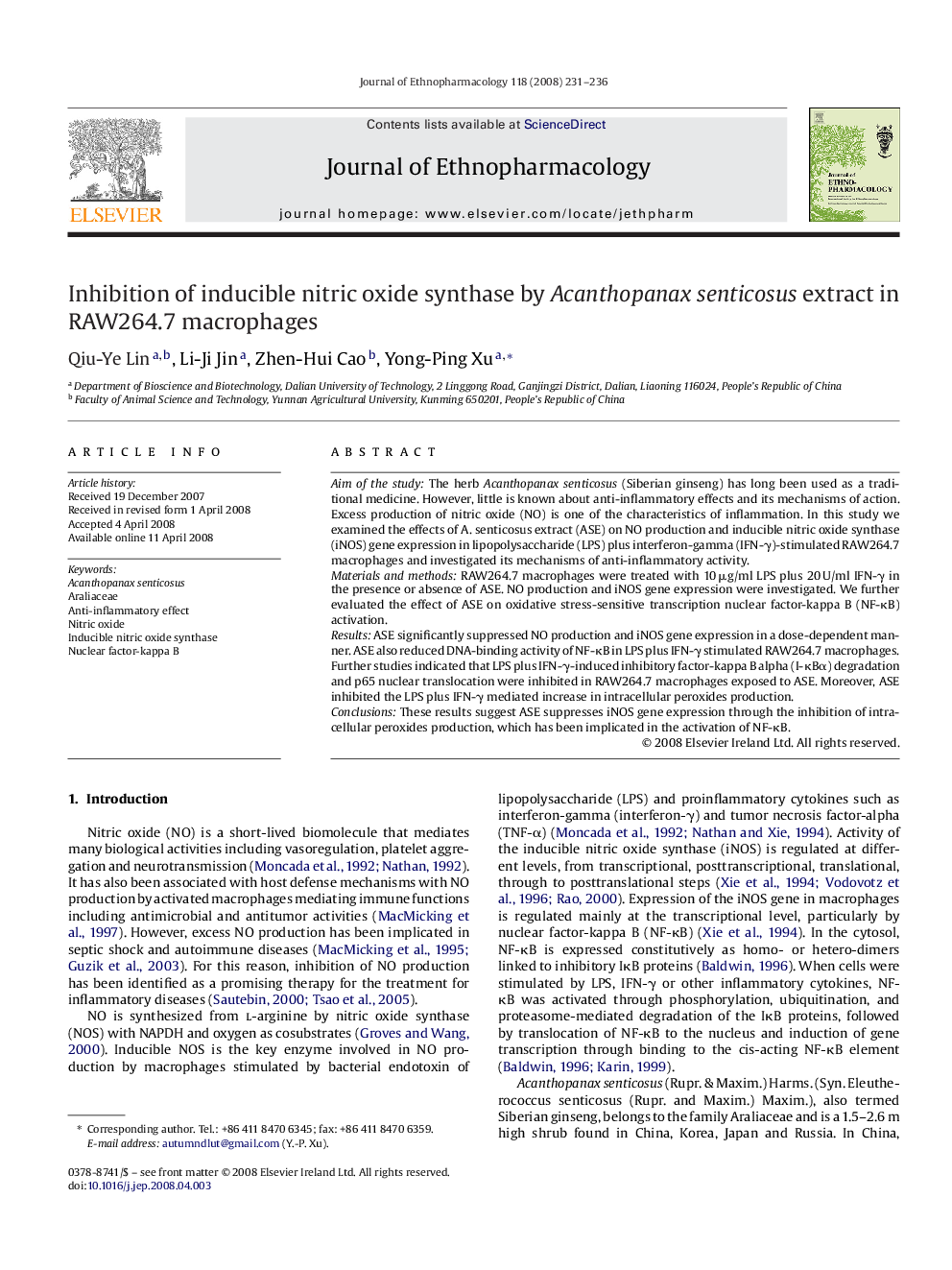| Article ID | Journal | Published Year | Pages | File Type |
|---|---|---|---|---|
| 2546945 | Journal of Ethnopharmacology | 2008 | 6 Pages |
Aim of the studyThe herb Acanthopanax senticosus (Siberian ginseng) has long been used as a traditional medicine. However, little is known about anti-inflammatory effects and its mechanisms of action. Excess production of nitric oxide (NO) is one of the characteristics of inflammation. In this study we examined the effects of A. senticosus extract (ASE) on NO production and inducible nitric oxide synthase (iNOS) gene expression in lipopolysaccharide (LPS) plus interferon-gamma (IFN-γ)-stimulated RAW264.7 macrophages and investigated its mechanisms of anti-inflammatory activity.Materials and methodsRAW264.7 macrophages were treated with 10 μg/ml LPS plus 20 U/ml IFN-γ in the presence or absence of ASE. NO production and iNOS gene expression were investigated. We further evaluated the effect of ASE on oxidative stress-sensitive transcription nuclear factor-kappa B (NF-κB) activation.ResultsASE significantly suppressed NO production and iNOS gene expression in a dose-dependent manner. ASE also reduced DNA-binding activity of NF-κB in LPS plus IFN-γ stimulated RAW264.7 macrophages. Further studies indicated that LPS plus IFN-γ-induced inhibitory factor-kappa B alpha (I-κBα) degradation and p65 nuclear translocation were inhibited in RAW264.7 macrophages exposed to ASE. Moreover, ASE inhibited the LPS plus IFN-γ mediated increase in intracellular peroxides production.ConclusionsThese results suggest ASE suppresses iNOS gene expression through the inhibition of intracellular peroxides production, which has been implicated in the activation of NF-κB.
